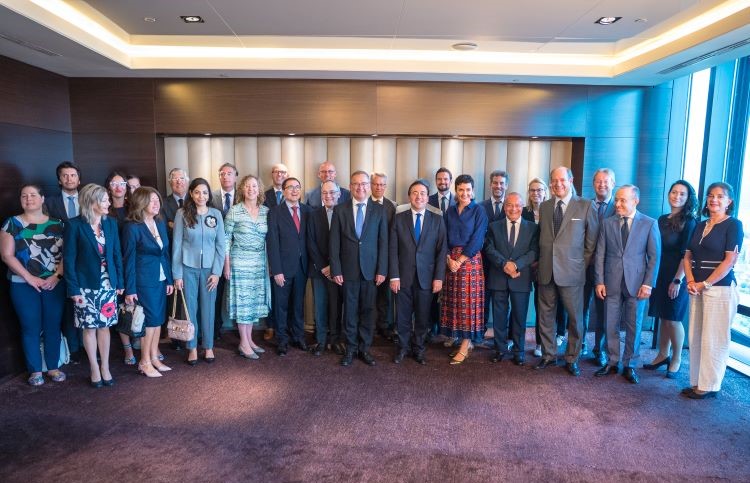The Diplomat
The Minister of Foreign Affairs, José Manuel Albares, presented yesterday before the ambassadors of the EU countries accredited in Spain the priorities of the Spanish Presidency of the European Union in the second half of 2023, while defending “urgent and coordinated measures” in the field of energy to reduce energy dependence on Russia.
During the working breakfast, organized by the current presidency of the Czech Republic of the Union at the Eurostars Madrid Tower hotel in Madrid, Albares said that the answer to major crises, such as the consequences of the COVID pandemic and the Russian invasion of Ukraine, is European unity and “more Europe”, as demonstrated by “the solidarity” shown by “all European countries” after the Russian aggression, which has resulted in European sanctions, economic support and, “for the first time”, military support “financed through a European instrument”.
For the Minister of Foreign Affairs, one of the main challenges in which European cooperation is most important is the energy problem, “which requires urgent and coordinated measures to respond to the serious crisis we are going through”. In this sense, he warned of the importance of reducing energy dependence on Russia “by accelerating the development of renewables, improving energy efficiency and promoting European gas and electricity interconnections”.
Albares made these warnings a week after French President Emmanuel Macron expressed his opposition to the MidCat pipeline, considering it unnecessary. Last Friday, the third vice-president and minister for Ecological Transition and the Demographic Challenge, Teresa Ribera, took advantage of her speech before the Extraordinary Council of Transport, Telecommunications and Energy of the EU to call for the reinforcement of “those infrastructures” necessary to facilitate gas connections, in clear allusion to the pipeline rejected by France. MidCat has been paralyzed for years due to its high costs and the so far low price of the Russian supply. There are 226 kilometers of pipeline to be built from the Catalan town of Hostalric to the French town of Barbaira, and Spain is asking the EU to cover the costs.
The second aspect for which concertation is essential, Albares continued yesterday, is economic governance, which, in his opinion, will make it possible to respond to inflationary pressures in food and energy and to increase public investment for the green and digital transitions. According to the minister, “fiscal rules at the European level are in need of reform”.
According to Albares, the work program of the EU Presidency will be linked to the work axes of the current European Commission: green, social and digital. He also recalled the ten main lines set out by the President of the Government, Pedro Sánchez, which include, among other issues, social and territorial cohesion, the reinforcement of the European citizen identity, sustainable economic growth, equality and inclusiveness or the reform of decision-making methods, highlighting in particular the strategic autonomy “in the areas that have the greatest impact on the daily lives of our citizens: health, food and, especially, energy”.
In his speech, the minister also pointed out the main lines of work of the Presidency: review of the Recovery and Resilience Plans, the EU Social Agenda, completing the European Pillar of Social Rights and the Action Plan of the Social Pillar; and the EU Green Agenda, to consolidate the fight against climate change in favor of biodiversity, the reform of the energy market and the development of interconnections.
Albares also recalled that during the Presidency, 22 informal ministerial meetings will be held in Spain, distributed geographically and temporally, and an informal European Council in Granada, and stressed that the Spanish semester is an opportunity to increase the EU’s attention to two crucial regions: Latin America and the Southern Neighborhood, with the EU-CELAC summit in Brussels and the Southern Neighborhood ministerial meeting in Barcelona.






